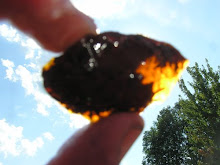Hope for a dimmer future
November 12, 2007
Boston Globe editorial
FACED WITH inaction at the state level, a number of Massachusetts towns have in recent years taken steps to reduce light pollution. An issue that grows more prominent as development expands, light pollution is the accumulated effect of the excessive artificial glow from buildings, street lamps, and billboards. Unregulated light pollution needlessly wastes energy, creates a dangerous level of glare for drivers, and seeps into nearby homes and apartments at night. While legislation at the local level is welcome, the state should take steps to deal with the nuisance of too much artificial light.
Of all the compelling reasons for the state to enact light pollution regulations, one packs an emotional punch: it is becoming more difficult to see the stars at night - not only in cities like Boston where the sky is becoming blanker, but in the suburbs as well. Astronomers are first to lament the trend. "It's harder and harder to find good places to do any viewing," says Paul Grueter, president of the South Shore Astronomical Society. But outdoor lights also hamper those simply looking for the Big Dipper with the naked eye.
Some changes often proposed by so-called dark sky advocates include shielding outdoor fixtures, so they shine on the ground below but not upward into the sky, and motion-sensor lights that turn on only when needed. A number of cities and towns in the state have some light pollution regulations, including Plymouth, which passed an ordinance in 1997. But many are ineffective, due to a lack of awareness and enforcement, advocates say.
Several states have passed light pollution laws. Arizona mandates shielding for most public light fixtures and requires different lighting levels for urban and rural areas. California's highways are dark-sky friendly. Massachusetts has no such law, despite the efforts of Representative James Marzilli of Arlington and dark sky advocates, who have been introducing legislation on the issue to no avail since the early 1990s.
Marzilli says he is puzzled at the lack of action, considering that Arlington has saved $100,000 a year on more dark-sky-friendly light fixtures, which use less energy. Recently Marzilli sponsored a light pollution bill that is a variant of what he has been introducing for years, and a provision within a broader energy bill that would require the Massachusetts Turnpike Authority to analyze inefficiencies in street lighting. Neither has left committee.
With a new governor professing his green credentials, and growing awareness of the effects of light pollution, these proposals may finally get some attention. The practical environmental, economic, and public safety benefits of regulation are many, but there is also a more profound goal: to make sure future residents of the state have a chance to feel awed as they peer into the night sky.
Tuesday, November 13, 2007
Subscribe to:
Post Comments (Atom)










No comments:
Post a Comment